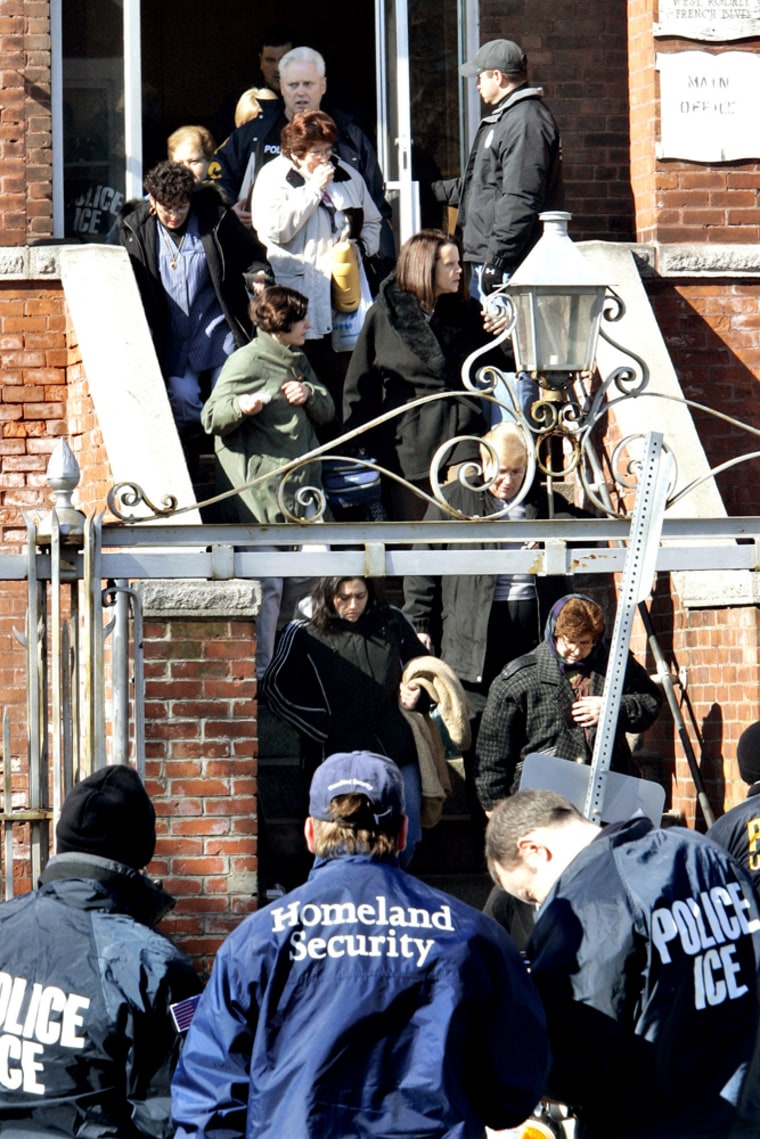Increasingly fearful of getting swept up in a government raid, some illegal immigrants in this Georgia carpet-mill town and around the country are drawing up legal instructions designating someone to take care of their children if the parents are jailed or deported.
At the urging of activists, parents are authorizing, in writing, a friend, neighbor or relative to watch their children. And they are being advised to carry the paperwork with them at all times.
“We’re talking about it, and we say the documented ones will take the children, and it’s better to have a signed paper,” said a 32-year-old mother from Mexico who works in a store in Tifton and spoke on condition of anonymity for fear of deportation.
She said she has lined up an aunt to take care of her 2-year-old American-born daughter for a few days. Beyond that, she said, she would want to be reunited with the little girl, whether in this country or back in Mexico, if necessary.
During workplace roundups of illegal immigrants, youngsters sometimes become separated from their parents and are taken into government custody, in some cases because the parents fail to disclose they have children. The children can be held for days or weeks before they are reunited with their parents on one side of the border or the other.
The New Bedford raid
The risk was illustrated recently by a federal raid in New Bedford, Mass., where state officials said dozens of children were left stranded at schools and with baby sitters when more than 300 workers were arrested at a leather factory.
As a result, Roman Catholic charities, unions and other groups are encouraging illegal immigrants to sign power-of-attorney forms and notarized custody instructions that also list information such as the children’s medications and what schools they attend.
“Undocumented parents need to have plans for their kids because they will lose contact with them,” said Flavia Jimenez of the National Council of La Raza, the nation’s largest Hispanic civil rights group.

Under U.S. law, children born in this country to illegal immigrants are American citizens and cannot be deported. There are about 3.1 million such children in the U.S. There are also an estimated 1.8 million children in this country illegally.
Parents of children both legal and illegal are filling out the papers, specifying such things as whether they want their U.S.-born children to stay here or to be sent back to the country where the parent might be deported.
While lawmakers on Capitol Hill are said to be close to a deal this week on a sweeping immigration overhaul that would give millions of illegal immigrants a chance at legal status, the country is seeing increasingly restrictive state and local laws and a recent surge in federal immigration raids.
Fear is particularly strong in Georgia, where many young mothers work in the fields, carpet mills and produce-packing houses, and where one of the nation’s strictest immigration-control laws, passed last year, will go into effect July 1.
Among other things, the law requires state agencies to check the immigration status of all adults asking for taxpayer-funded benefits such as food stamps and extends to some local law enforcement the authority to enforce federal immigration laws.
U.S. Immigration and Customs Enforcement officials said they coordinate with state social service agencies and occasionally release illegal immigrants who need to take care of their children. But they noted that having children is no guarantee against deportation.
One especially detailed form distributed in Kentucky asks parents to list the children’s school and teacher; the names, phone numbers, workplaces and relationships of those who are allowed to pick children up; the names of those who should not be allowed to get the children; even the veterinarian for family pets.
